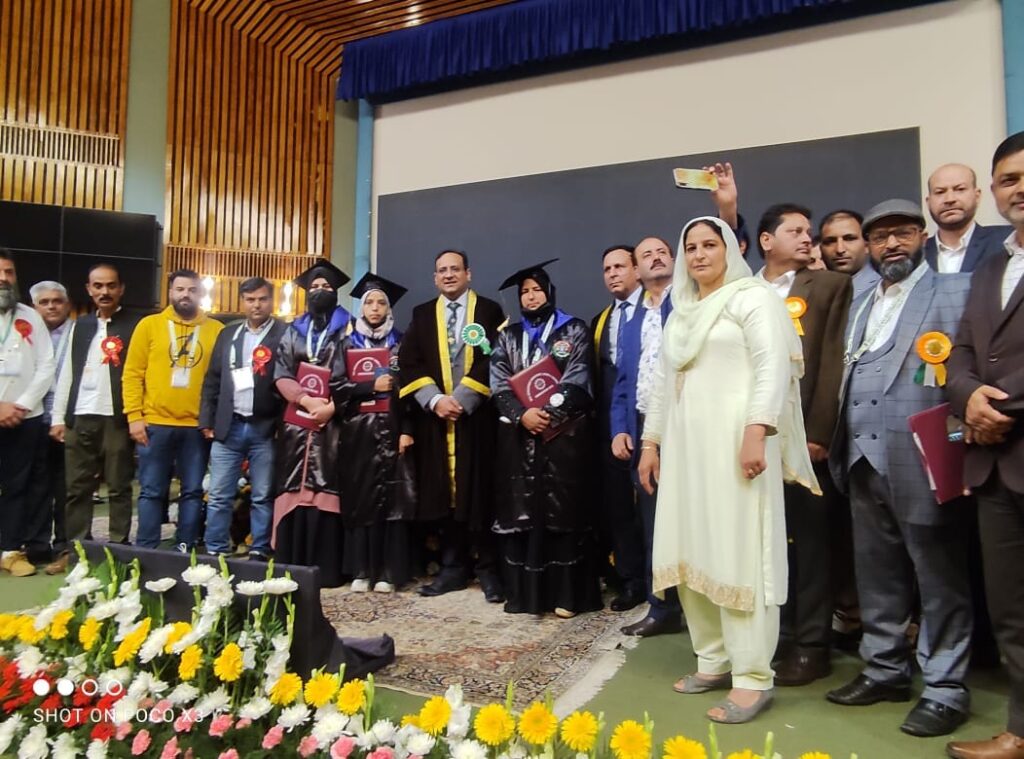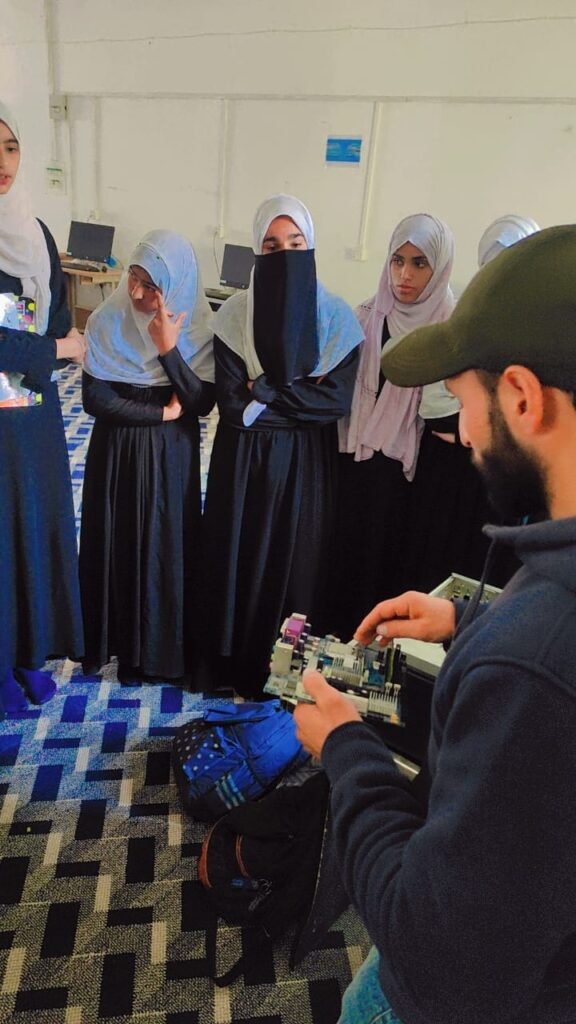In today’s fast-changing world, technical skills have become more important than ever, especially in regions like Kashmir, where industries are rapidly evolving. The Department of Skill Development has been at the forefront of providing high-quality technical education through its wide network of Industrial Training Institutes (ITIs) and Polytechnics. With a focus on creating a skilled workforce that meets the needs of local industries and the global market, the department offers a range of courses designed to equip students with the practical expertise needed to succeed in various fields. From core engineering disciplines to specialised technical training, these institutions are paving the way for a brighter future for Kashmir’s youth.
1. The Role of Skill Development in Industrial Growth
Skill development plays a critical role in driving industrial growth, particularly in regions like Kashmir, where industries rely heavily on trained manpower. Skilled workers are the backbone of industrial progress, and without them, it is challenging to maintain the pace of development. By providing youth with technical skills, the region not only boosts employment but also ensures the steady growth of industries such as handicrafts, manufacturing, and information technology. Skill development ensures that local industries remain competitive, fostering socio-economic stability in Kashmir.

2. Vision and Mission of the Skill Development Department
The Skill Development Department in Kashmir aims to create a robust system of technical education that is aligned with the needs of modern industries. The department’s vision is to equip the youth with employable skills, ensuring that they are capable of contributing to both the local economy and the global workforce. The mission revolves around providing high-quality education and training, enhancing employment opportunities, and addressing the specific needs of businesses and communities in Kashmir.
3. Historical Background of the Directorate of Skill Development
The Directorate of Skill Development in Kashmir was established to address the growing demand for skilled labour in the region. Initially operating under the Department of Industrial Training and Employment, the directorate was formally constituted in 1981. Before that, polytechnics were under the control of the Higher Education Department. The creation of the Directorate was a crucial step in consolidating various technical training programmes under one administrative body, facilitating more focused and strategic planning for Kashmir’s industrial workforce.
4. Evolution of ITI’s and Polytechnics Under the Department
The evolution of Industrial Training Institutes (ITIs) and Polytechnics in Kashmir reflects the region’s commitment to technical education. Initially, the department had just a handful of institutions, but over the years, this number has grown substantially. Today, ITIs and Polytechnics in both government and private sectors offer a variety of courses aimed at building a technically skilled workforce. The continuous growth in the number of these institutes highlights the increasing demand for skilled labour in Kashmir’s evolving industries.
5. Expansion of Training Institutes: A Growth Overview
Kashmir has seen remarkable growth in the number of training institutes over the past few decades. From just seven ITIs and two Polytechnics, the region now boasts 60 ITIs and 32 Polytechnics. This expansion has not only increased the capacity for technical education but has also diversified the types of training available. The growth in both government and private sector institutes demonstrates the success of policies aimed at promoting skill development and highlights the importance of technical education for the region’s economic future.
6. Intake Capacity and Course Offerings in ITI’s and Polytechnics
The intake capacity in Kashmir’s ITIs and Polytechnics has also grown significantly. ITIs now offer training in 72 different trades, ranging from six-month to two-year courses, with a total intake of 15,763 students. Meanwhile, Polytechnics provide 16 different AICTE-recognised diploma programmes with an intake of 5,655 students. These institutions cover a broad spectrum of technical fields, including both core and specialised engineering and non-engineering disciplines, ensuring that students have access to a wide range of career opportunities.

7. Human Resource Development Schemes and Initiatives
The Skill Development Department in Kashmir has implemented several schemes aimed at human resource capacity building. These initiatives are designed to equip young people with the technical skills required to meet the demands of local industries. One of the department’s key initiatives is the Skill Development Mission, which aims to train thousands of youth in employable technical skills. Other schemes include Public Private Partnership (PPP) initiatives, as well as centrally funded programmes that focus on both short- and long-term training.
8. Skill Development Mission: Targets and Achievements
The Skill Development Mission in Kashmir has set ambitious targets for training the region’s youth. The goal is to provide technical training to 78,593 young people over a five-year period. By 2013, the department had already trained 24,626 individuals, with a further 44,813 expected to be trained by the end of the financial year. These efforts are designed to ensure that the youth of Kashmir are well-equipped to meet the demands of the modern job market, both locally and nationally.
9. Centrally Funded Schemes for Polytechnic and ITI Sectors
Several centrally funded schemes have been introduced to support the Polytechnic and ITI sectors in Kashmir. One such programme is the Community Development Through Polytechnics (CDTP) scheme, which aims to provide short-term skill training to rural and economically disadvantaged communities. This initiative is particularly significant in Kashmir, where many people in remote areas rely on local industries for their livelihoods. Through CDTP and other similar programmes, the department is working to uplift the economic conditions of the region’s rural population.

10. Vision for the Future: Expanding Access and Enhancing Quality
The future vision of the Skill Development Department in Kashmir focuses on expanding access to technical education and improving the quality of training. The department aims to make skill development opportunities available to all, regardless of socio-economic background. This will be achieved through the expansion of existing institutions, the creation of new ones, and the regular updating of curricula to meet the latest industry standards. The ultimate goal is to create a skilled workforce that can drive economic growth and prosperity in Kashmir, while also maintaining high standards of education and training.
Appeal to Students
If you’re looking to build a successful career and contribute to the growth of Kashmir’s industries, now is the perfect time to join the technical education revolution. Whether you’re interested in engineering, manufacturing, information technology, or any other technical field, our ITIs and Polytechnics offer a variety of courses to match your interests. By enrolling in these programmes, you’ll gain hands-on experience, recognised qualifications, and the skills that employers are seeking. Take the first step towards a promising future—join us today and be part of Kashmir’s journey to industrial and economic prosperity.
You May Like :
Education In Kashmir with Complete Statistics
Colleges In Kashmir From Anantnag To Kupwara
Transformation in Jammu and Kashmir: Equal Rights and Progress for All
UGC Revolutionizes PhD Admissions: NET Scores to Replace University Entrance Tests
Driving Entrepreneurial Success: NIT Srinagar’s Advanced Skill Development Workshop Triumphs


1 thought on “Advancing Technical Education and Skill Development in Kashmir for Industrial Growth”